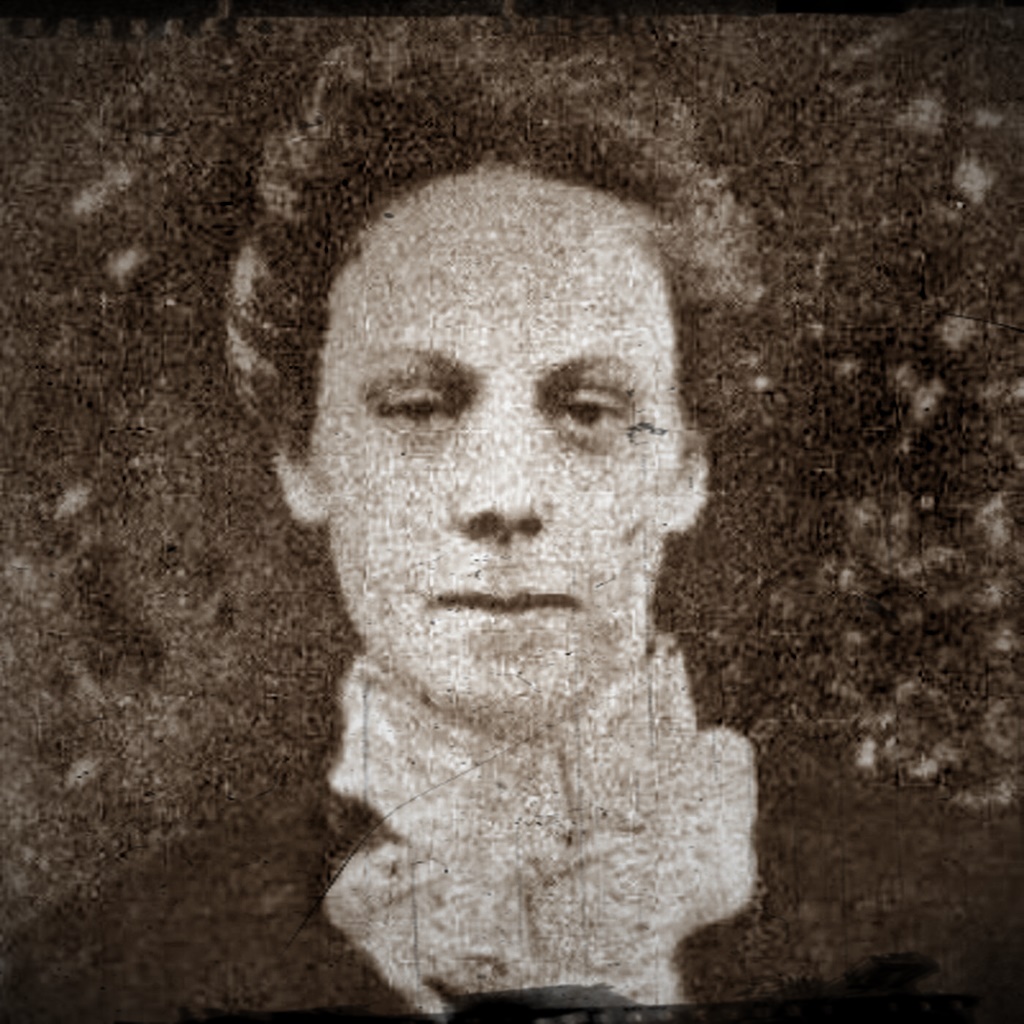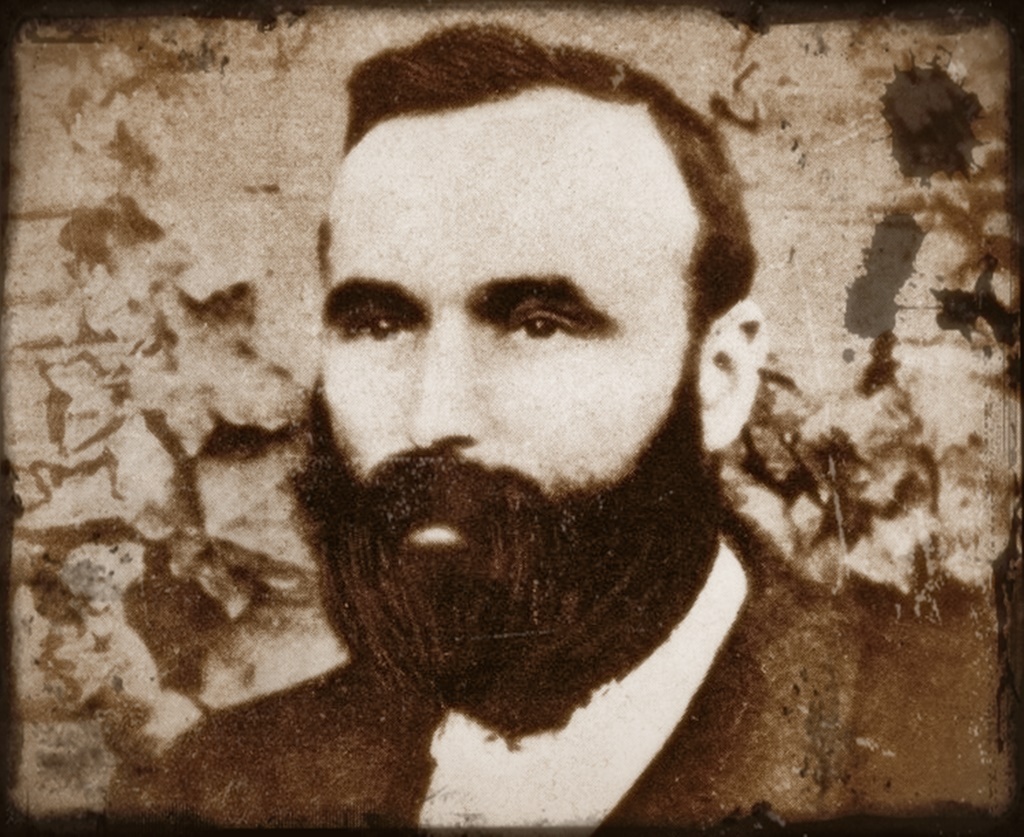
Twenty-two-year old Rose Harsent was evidently a popular girl around Peasenhall, a small parish in the county of Suffolk. She worked as a domestic servant at Providence House, the residence of Baptist elder Deacon William Crisp and his family, and she apparently had no shortage of suitors, who would send her dirty poems and graphic love letters at her request.
She had gotten into a spot of trouble the previous year, in fact, because it was suspected that she was carrying on an affair with a much older gentleman, a married Methodist elder and choir master by the name of William Gardiner. Two local snoops had allegedly heard the pair of them engaging in activities that weren’t exactly choir practice, and Gardiner was reprimanded for his lack of propriety, though the allegations against him were never conclusively proven. The whiff of scandal still followed him around town, however.

Some time on May 31st, 1902, Rose Harsent received a note, presumably from one of her beaus. It read, “I will try to see you tonight at 12 o’clock at your place if you put a light in your window at 10 o’clock for about 10 minutes then you can take it out again, don’t have a light in your room at 12 as I will come round to the back.”
No one knows if Rose kept this particular rendezvous, because the following morning, June 1st, Rose’s father William dropped by Providence House to visit her, entering the house through the back door. He found his daughter lying dead in a pool of blood at the bottom of the servant’s staircase.
Rose was clad only in her nightdress and socks. Her throat and chest had been viciously slashed several times, and her clothing, arms, and lower extremities were partially burned, as though someone had tried to set the body on fire. Lying near the corpse was a smashed oil lamp, a broken bottle containing paraffin, and a singed scrap of newspaper torn from the East Anglian Daily Times.
A search of the premises turned up the note from the previous day, and as the handwriting on the letter resembled that of William Gardiner, the police wasted little time in investigating the scandal-prone choir master. After all, it certainly seemed an open and shut case: Gardiner only lived about two hundred yards from Providence House, and the scrap of newspaper found at the scene came from a publication that Gardiner subscribed to, but the Crisp family did not.
Even more damningly, the label on the bottle containing the paraffin had previously contained some type of medicine, and it had been prescribed to the Gardiner children. Further, some neighbors claimed that they had seen Gardiner standing out on his porch at ten o’clock on the night of the murder, and that there had been a light in one of the upper windows of Providence House. Another witness claimed that he had seen muddy footprints leading from the Gardiner home to Providence House, though by the time police investigated, rain had washed them away.
There was plenty of other circumstantial evidence as well. Gardiner’s small knife was found to have blood inside the hinge. Witnesses claimed they had seen a bonfire on Gardiner’s property on the day after the murder, suggesting he was burning the clothes he’d been wearing.
When the body of Rose Harsent was autopsied, it also came to light that she had been six months pregnant. This strengthened the case against William Gardiner immeasurably, investigators felt, and they put together a hypothetical scenario whereby he had arranged to meet Rose by sending her the note, she had told him she was keeping the baby and requested support for it, and he had killed her instead.
Obviously, William Gardiner categorically denied every single stage in this chain of events. He claimed he had not wrote the letter, had not fathered Rose’s child, and had definitely not killed her. However, investigators were sure they had their man, and Gardiner was duly arrested and placed on trial for murder in November of that year.
On the stand, Gardiner swore up and down that he had been in bed with his wife Georgina for the entire night, and Georgina staunchly backed up this assertion. Georgina, in fact, claimed that most of the other evidence pointing to her husband’s guilt could easily be explained away. The blood on his knife, for example, had come from a rabbit, and the bonfire was simply for boiling a pot of water. The paraffin bottle with the Gardiner label was only at Providence House because Georgina had filled the bottle earlier with cold medicine and given it to Rose when she was sick.
In addition, the Gardiners’ next door neighbor Amelia Pepper testified that she had been awake the entire night of the murder and had not seen or heard anyone leaving the Gardiner house at all.
Gardiner’s defense attorney also made much of the fact that Rose had been no shrinking violet by any means, and produced several examples of salacious love letters and pornographic poems that had been sent to her by various men, any one of whom, the defense argued, could have gotten her pregnant and thus had motive to kill her.
It was further suggested that the girl’s death might simply have been a terrible accident; perhaps she had been rushing down the stairs to keep her appointment with her paramour, and had slipped and fallen, in the process becoming sliced up by the broken shards of the oil lamp and setting herself ablaze with the bottle of paraffin in her hand. This sequence of events was admittedly farfetched, but it did introduce some reasonable doubt to the proceedings.
In the end, eleven of the twelve jurors voted to convict, but the last juror, Evan Edwards, claimed he could not see any evidence sufficient to convince him of Gardiner’s guilt, and refused to change his vote. Therefore, a retrial was scheduled for January of 1903.
The second trial covered much the same ground as the first, with most of the same arguments presented on both sides and only a few minor facts and testimony altered. It seems that the passage of time had helped Gardiner’s case a great deal, because this time around the jury voted eleven to one to acquit him.
Since British law at the time demanded a unanimous decision to reach a verdict, and since the Crown saw no further purpose in continuing to pursue a conviction, William Gardiner was released under a plea of nolle prosequi, essentially freeing him but not exonerating him of the crime. Shortly afterward, Gardiner, his wife, and their six children moved to London and kept an exceedingly low profile for the rest of their lives.
While most modern researchers are all but convinced that William Gardiner did indeed murder Rose Harsent, there are some who argue that her death was accidental, or that she was killed by another suitor named Frederick James Davis, or even that Gardiner’s wife Georgina actually killed the young woman in a jealous rage and had her husband cover up for her.
These scenarios are certainly possible, though it seems far more likely that Gardiner murdered his young lover and Georgina covered up for him to keep from losing his income and the family’s reputation. William Gardiner died in 1941, and the slaying of Rose Harsent remains officially unsolved.
